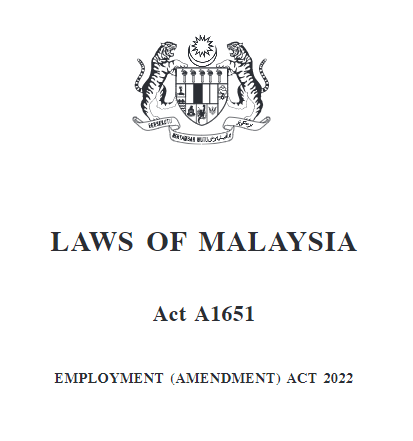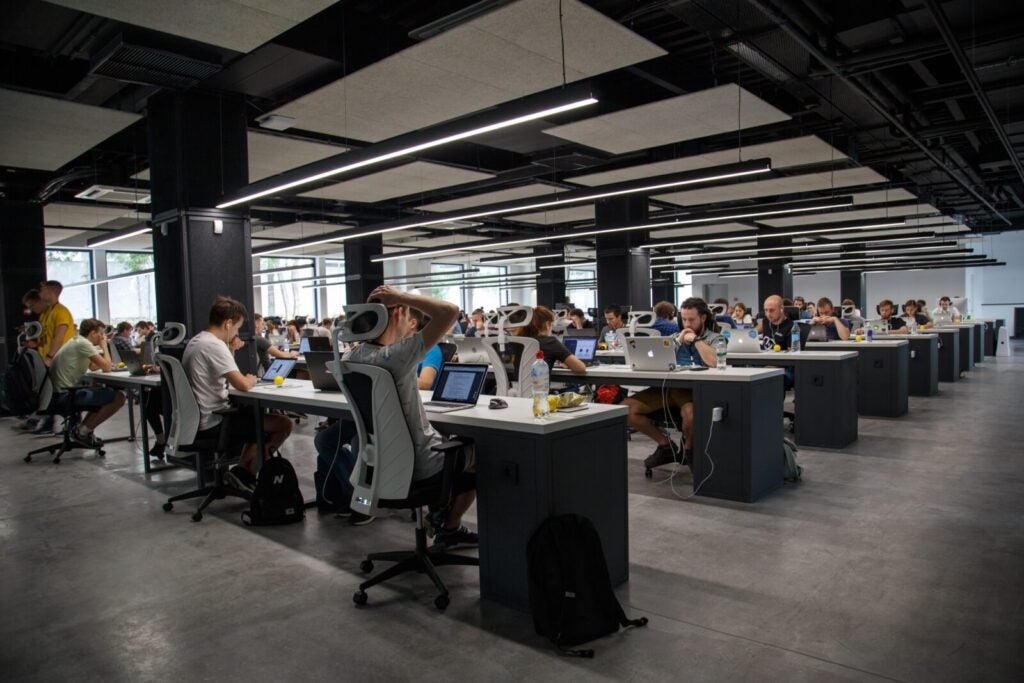Disclaimer: In Real Life is a platform for everyday people to share their experiences and voices. All articles are personal stories and do not necessarily echo In Real Life’s sentiments.
The Covid-19 lockdown in 2020 caused many corporate companies to rethink their working arrangements and protocols. Everyone had to restructure and adapt to work from home (WFH) and hybrid working conditions – both employers and employees had to make changes in the way things were operated.

On the 25th of October 2021, amendments to the Employment Act 1955 were proposed and will take effect beginning the 1st of September, 2022. Some key amendments include maternity and paternity leave, sexual harrassment notices, and reduced weekly hours.
A new part was also added that allows employees to apply for flexible working arrangements(FWA).
What are “flexible working arrangements”?
The new part on flexible working arrangements(FWA) states that “an employee may apply to an employer for a flexible working arrangement to vary the hours of work, days of work or place of work in relation to his employment.”
According to new research, it was revealed that 60% of surveyed full-time employees in the region prefer the flexibility to work whenever they want over one less day at work – the 4-day work week that has also been a heated topic.
 Gone are the days where people work 9-5 at the office. With almost everything being digital and able to be run remotely, job vacancies that don’t boast work-from-anywhere(WFA) perks or flexible hours just aren’t attractive.
Gone are the days where people work 9-5 at the office. With almost everything being digital and able to be run remotely, job vacancies that don’t boast work-from-anywhere(WFA) perks or flexible hours just aren’t attractive.
When asked why flexible arrangements were favoured over shorter weeks, mother of two, Nuraida, had this to say: “My daughter fell very ill one Tuesday and I had to leave her with another family member. It broke my heart that I couldn’t tend to her when she wanted me there. Things like these don’t only happen on weekends.”
What is the application process for FWA?
According to the Employment Act 2022, an employee who wishes to apply for a flexible work arrangement simply has to apply in the manner that is to be determined by the Director General.
Once their application has been submitted, the employer has sixty days to respond. If the application is approved, the employee may work under the arrangement they applied for. However, if the application is rejected, the employer will have to reply in writing and give proper reasoning as to why the application has been rejected.
Do Malaysian bosses think FWA is a good idea?
This addition to the Employment Act is definitely a plus for employees. Flexible hours and location would mean that employees will have more freedom to complete their work in their own time and not have to battle rush hour traffic everyday.

What about the employers? Would this freedom cause worry when it comes to hitting KPIs and maintaining productivity?
“If the employee is very efficient and can complete his/her assignments on time and in good quality, the employee can work on a flexible schedule.” says Ming, the CEO of a local marketing agency.
“It depends on the individual employee, if they are disciplined and can show that they can be trusted with a flexible working arrangement by maintaining their productivity and hitting their KPIs, then it’s not an issue.
“Of course it goes back to the company as well, we have to make sure that our employee is aware of what is asked of them and these expectations must be communicated clearly. If the output with FWA is similar or even better than the traditional hours and working in the office, then great, perhaps it will be something we can look into implementing company wide.”
It all boils down to trust and responsibility
“I am a mother as well, so I fully understand why an employee would want to have more flexible hours and work location. My kids were very young when I was still working under someone else, I missed out on a lot of their milestones.” Aida, a fashion entrepreneur, tells IRL.

“I always want to make sure that my team is happy with their work environment, that’s the only way they can stay motivated and do well. Micro management does not work.
“I’ve already implemented flexible working in my company and morale is at an all time high. My team is my company’s main asset. That is not to say however that I’ve completely let go, I am still checking periodically to make sure that our customer feedback is satisfactory.
“Flexible hours and location are allowed as long as the work is done. My employees know that the flexibility can be taken away if it becomes the reason for lesser quality or efficiency.”
Will you be applying?
Different people work better under different conditions. Some prefer sitting in the office where there are no distractions and other colleagues and superiors to keep them accountable, while others might prefer working in a cafe, sipping on lattes while living out their main character life.
Whichever is it you prefer, the option for the latter will be available from September 1st 2022 onwards.
Know anyone with an interesting story to share? Drop us an email at ym.efillaerni@olleh and we may feature the story!
For more stories like this, read:
Malaysian Millennials: “Boomer Bosses” STILL don’t understand our job expectations
You might also like
More from Real Skills
How I Saved Almost RM50,000 On Buying My First Car
Here's how this Malaysian man with a RM3,500 salary saved RM50,000 on his first car.
Angry M’sian Boss Demands Unpaid Overtime Over Raya, Causes 9 Staff To Quit
An anonymous employee at a local SME shares how a bad-tempered boss eventually caused 9 staff to quit before Hari …
I Studied In Chinese School As A Malay Boy, Here’s What I Learnt
Every time I used Mandarin outside of school, family members would come up to me at gatherings and ask me …


















